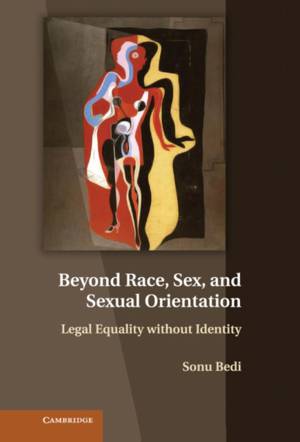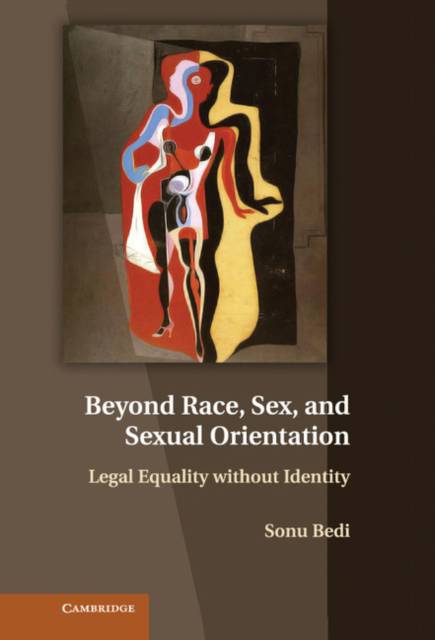
Bedankt voor het vertrouwen het afgelopen jaar! Om jou te bedanken bieden we GRATIS verzending (in België) aan op alles gedurende de hele maand januari.
- Afhalen na 1 uur in een winkel met voorraad
- In januari gratis thuislevering in België
- Ruim aanbod met 7 miljoen producten
Bedankt voor het vertrouwen het afgelopen jaar! Om jou te bedanken bieden we GRATIS verzending (in België) aan op alles gedurende de hele maand januari.
- Afhalen na 1 uur in een winkel met voorraad
- In januari gratis thuislevering in België
- Ruim aanbod met 7 miljoen producten
Zoeken
Beyond Race, Sex, and Sexual Orientation
Legal Equality Without Identity
Sonu Bedi
Hardcover | Engels
€ 187,45
+ 374 punten
Uitvoering
Omschrijving
The conventional interpretation of equality under the law singles out certain groups or classes for constitutional protection: women, racial minorities, and gays and lesbians. The United States Supreme Court calls these groups "suspect classes." Laws that discriminate against them are generally unconstitutional. While this is a familiar account of equal protection jurisprudence, this book argues that this approach suffers from hitherto unnoticed normative and political problems. The book elucidates a competing, extant interpretation of equal protection jurisprudence that avoids these problems. The interpretation is not concerned with suspect classes but rather with the kinds of reasons that are already inadmissible as a matter of constitutional law. This alternative approach treats the equal protection clause like any other limit on governmental power, thus allowing the Court to invalidate equality-infringing laws and policies by focusing on their justification rather than the identity group they discriminate against.
Specificaties
Betrokkenen
- Auteur(s):
- Uitgeverij:
Inhoud
- Aantal bladzijden:
- 292
- Taal:
- Engels
Eigenschappen
- Productcode (EAN):
- 9781107018358
- Verschijningsdatum:
- 2/09/2013
- Uitvoering:
- Hardcover
- Formaat:
- Genaaid
- Afmetingen:
- 155 mm x 231 mm
- Gewicht:
- 521 g

Alleen bij Standaard Boekhandel
+ 374 punten op je klantenkaart van Standaard Boekhandel
Beoordelingen
We publiceren alleen reviews die voldoen aan de voorwaarden voor reviews. Bekijk onze voorwaarden voor reviews.









